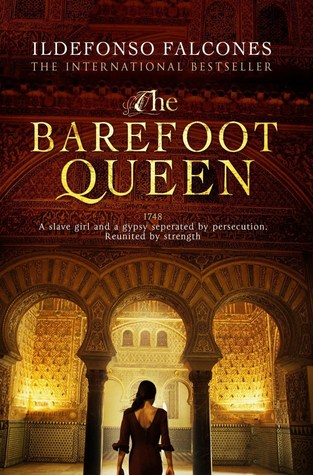McLain, Paula "The Paris Wife" - 2012A couple of years ago, everybody seemed to be reading "The Paris Wife". But I had read "
The Time Traveler’s Wife" which I hated and I neither was too happy with "
The Railwayman's Wife". So, I thought maybe I should keep away from "wife" books, as well. But at some point, I bought a copy. It still stayed on my TBR pile for a couple of years.
Then, one of my blogger friends introduced me to "
Paris in July" and I thought it was time to read it. First of all, it has the word "Paris" in its title and it takes place in Paris. Also, I have read a few books by Ernest Hemingway (
The Old Man and the Sea,
For Whom the Bell Tolls) and have a few more on my wishlist. So, why not give it a go?
I was positively surprised about the book. Written from the perspective of the first of his four wives, we learn a lot about Hadley as well as Ernest and his second wife, Pauline.
The author remarks: "
Although Hadley Richardson, Ernest Hemingway and other people who actually lived appear in this book as fictional characters, it was important for me to render the particulars of their lives as accurately as possible, and to follow the very well documented historical record."
I was aware throughout the whole book that this is a novel written in the form of a memoir, not a biography. That didn't change the fact that it was highly interesting to read about the lives of some extraordinary people. Hemingway was in an interesting circle of authors and artists and they all appear in the book.
I have lived in four different countries and I came from a small village into a big foreign town in my early twenties but life was different in our time. We didn't have the internet but there were books, there was the television and people had moved around, not many and often not far but nothing compared to the difference between Hadley's sheltered, very remote life before she met Ernest Hemingway and life in Paris. It must have been really, really hard for her.
There are also some small parts where Ernest tells us his side of the story. Of course, he has already been through and survived one war which always changes a man. But you also can tell there that they were two completely different personalities not just with different ideas but also with different goals. It's probably a miracle the marriage survived as long as it did.
The book is not just interesting concerning the life of the Hemingways but also the other characters are interesting as is the life in Paris in the twenties. We hear so much about it. This book helps us understanding it a little better. Definitely brilliantly written.
I'd love to read more of Paula McLain's books but definitely her memoir: "
Like Family. Growing Up In Other People's Houses".
One quote by Ernest Hemingway: "
I want to write one true sentence", he said. "
If I can write one sentence, simple and true every day, I'll be satisfied". I think his writing shows that this was his goal and he achieved it.
At the end of the book, Paula McLain adds a list of her sources, all of them would be interesting to read if you like the subjects:
About the Hemingways:
Alice Hunt Sokoloff, Alice " Hadley: The First Mrs. Hemingway"
Diliberto, Gioia "Hadley"
Kert, Bernice "The Hemingway Women"
Baker, Carlos "Ernest Hemingway: A Life Story and Ernest Hemingway: Selected Letters 1917-1961"
Reynolds, Michael "Hemingway: The Paris Years and Hemingway: The American Homecoming"
Brian, Denis "The True Gen"
About Paris in the twenties
Wiser, Willam "The Crazy Years"
Flanner, Janet "Paris Was Yesterday"
Tomkins, Calvin "Living Well Is the Best Revenge"
Milford, Nancy "Zelda"
Fussell, Paul "The Great War and Modern Memory"
Other books by Ernest Hemingway:
"A Moveable Feast"
"In Our Time"
"The Sun Also Rises"
"The Garden of Eden"
"Death in the Afternoon"
"The Complete Short Stories"
From the back cover:
"
Chicago, 1920: Hadley Richardson is a shy twenty-eight-year-old who has all but given up on love and happiness when she meets Ernest Hemingway and is captivated by his energy, intensity and burning ambition to write. After a whirlwind courtship and wedding, the pair set sail for France. But glamorous Jazz Age Paris, full of artists and writers, fuelled by alcohol and gossip, is no place for family life and fidelity. Ernest and Hadley's marriage begins to founder and the birth of a beloved son serves only to drive them further apart. Then, at last, Ernest's ferocious literary endeavours begin to bring him recognition - not least from a woman intent on making him her own."
Ernest Hemingway received the Nobel Prize for Literature in 1954 "
for his mastery of the art of narrative, most recently demonstrated in 'The Old Man and the Sea' and for the influence that he has exerted on contemporary style"
and the Pulitzer Prize for "The Old Man and the Sea" in 1953.
I contribute to this page:
Read the Nobels and you can find all my blogs about Nobel Prize winning authors and their books
here.
























